Addressing Financial Abuse in Women’s Financial Inclusion
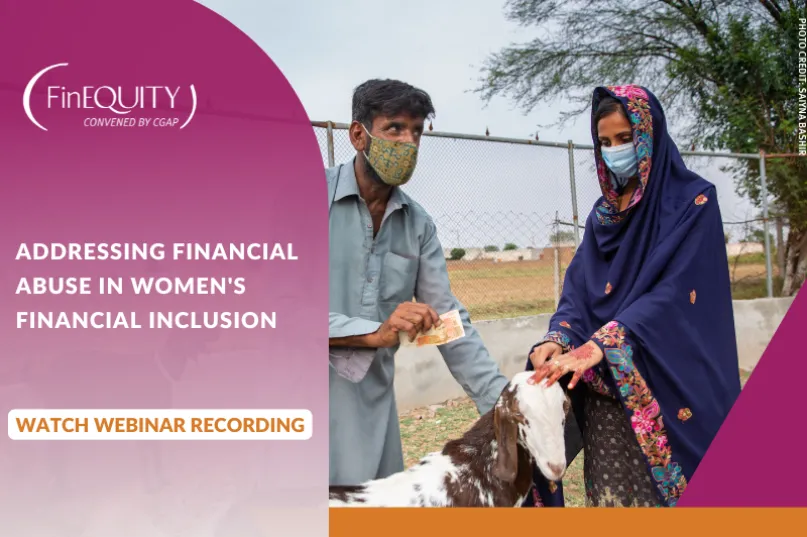
Watch the recording and view the presentation shared during the webinar.
Economic abuse or financial abuse of women and girls is a form of domestic abuse. It often occurs in the context of intimate partner violence and involves the control of a partner or ex-partner’s money and finances, as well as the things that money can buy. Financial abuse may also come from other members of the family. This is more relevant in developing/less developed countries. Financial abuse towards women can include exerting control over their income, spending, bank accounts, bills and borrowing. It can also include controlling access to and use of things like technology which allow us to work and stay connected.
This session introduced the concept of economic abuse against women and girls, discussed a working definition, and provided insights from work by Grameen Foundation, Surviving Economic Abuse UK, and IFC in this sector.
About this event
Online
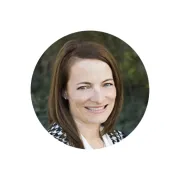
Bobbi Gray
Bobbi coordinates research, evaluation, monitoring and learning activities with Grameen staff, in-country research teams, academic researchers, and partner organizations across all of Grameen’s programs in Latin America, Southeast Asia, and Africa. Prior to Grameen, she worked with Freedom from Hunger in the same role. She speaks English, Spanish, and French. When not supporting Grameen, she chases three children, two dogs, and feeds a dozen barn cats, deer when they grace her home, and periodically, rowdy cowboys and cowgirls wranglin’ cattle on a ranch in the Texas Panhandle
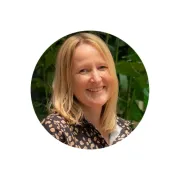
Dr Nicola Sharp-Jeffs OBE
Nicola is an expert in economic abuse as it occurs within the context of coercive control. She has worked in the violence against women and girls (VAWG) sector since 2006 in both policy-influencing and research roles. In 2016, Nicola was made a Churchill Fellow and travelled to the United States and Australia to explore innovative responses to economic abuse. It was her determination to ensure that women in the UK have access to the same responses that led her to establish SEA. Read more about her work as part of the Churchill Fellowship (under ‘Economic abuse and policy’). Nicola is also an Emeritus Research Fellow in the Child and Woman Abuse Studies Unit (CWASU), London Metropolitan University. In 2020, Nicola was awarded an OBE in the Queen’s Birthday Honours for services to victims of domestic and economic abuse in recognition of her work. She was the 2020 winner of the Third Sector Award for Rising Chief Executive and was also named ‘Rising Leader of the Year in 2021 by the Charity Times Awards.
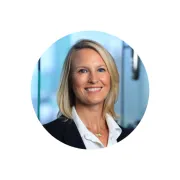
Sarah Twigg
Sarah is a distinguished private sector development specialist with the International Finance Corporation (IFC), the private sector arm of the World Bank Group. With a background spanning almost two decades in private sector operations and international development, Sarah has made significant contributions to organizations such as the International Finance Corporation, World Bank, United Nations Development Program, and as a commercial lawyer in New York and New Zealand. Sarah is currently based in IFC’s Hanoi office, where she leads IFC's gender and economic inclusion work across East Asia and the Pacific. Her work focuses on bridging gender gaps to improve business outcomes and fostering economic development. Sarah spearheads collaborative projects with private sector partners, with a specific emphasis on enhancing women’s employment and corporate leadership opportunities, promoting women's access to financial services and non-financial resources, and supporting women-owned businesses to grow and thrive.
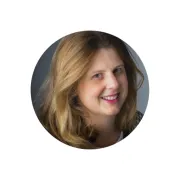
Aude de Montesquiou
Aude de Montesquiou is FinEquity Community of Practice Facilitator at CGAP. Aude worked at CGAP from 2005 to 2017, last as Financial Sector Development Specialist, leading CGAP’s Graduating the Poorest and Vulnerable Segments work. She oversaw the implementation of the CGAP-Ford Foundation Graduation Program, a global effort to understand how safety nets, livelihoods, and microfinance can be sequenced to create for the poorest out of extreme poverty in eight countries with an intensive research agenda and randomized impact evaluations in seven sites (Science, 2015). She was a co-founder and successfully managed the Graduation community of practice and is the author of seminal publications on economic inclusion of the poorest including technical guides, research and policy briefs. In 2017 Aude co-created a new Global Partnership within the World Bank Social Protection and Jobs Unit (SPJ), the Partnership for Economic Inclusion (PEI), to help governments develop, implement, and scale economic inclusion programs to sustainably increase the income, assets, and economic resilience of extreme poor and vulnerable people and co-led the World Bank flagship State of Economic Inclusion Report 2021. Most recently, Aude has been Senior Advisor at BRAC’s Institute for Governance and Development working on digital innovations for Economic Inclusion programs.